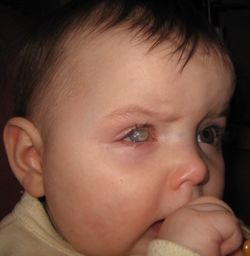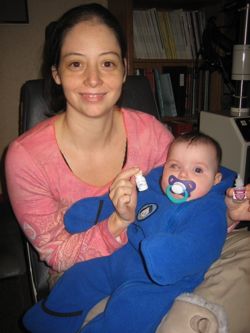Alaska Blind Child Discovery
A
cooperative, charitable research project to vision screen every preschool
Alaskan
Eye Drops for Children
Home
What is the best antibiotic eye drop for children? The answer is "That depends." ideally the drop works quickly on the offending microorganism (bacteria, virus, fungus or protist), is well tolerated by the eye and lids, does not sting when instilled, kills pathogens with a minimum of drops and is well tolerated by the family (general health of baby, acceptance by mom, cost, etc). Leading pediatric ophthalmologists have found great success with dilute (1.5%) iodophore (Betadine) being inexpensive and effective for nonatal and infant eye infections worldwide- the tast is bitter, however. ABCD does not prefer drops / oitments that hurt or sting due to poor pH, that causes frequent allergy (sulfa and neomycin), or delays corneal healing (gentamicin). ABCD prefers antibiotics that kill germs (-cidal) instead of just slowing germs down (-static). Part of an eye drop goes to /in the eye whereas the rest flows down the tear duct through the nose and is ingested. An infant weighing 3 Kg ingests the same amount of eye drop as does a 70 Kg adult therefore it is particularly important to consider systemic side effects like adrenal suppression (combinations with corticosteroids), diarrhea and even taste.
ABCD History
Kids Eye Disorders
Amblyopia
Vision Screening
Issues
ABCD Clinics
 Infant with corneal ulcer
Infant with corneal ulcer
